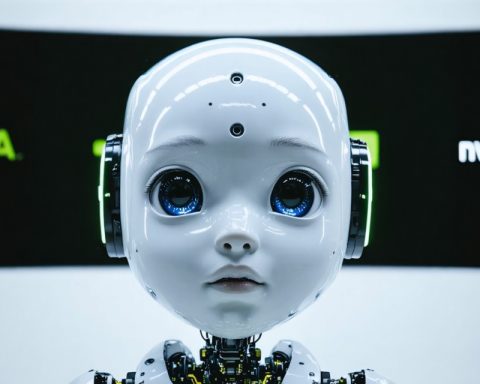In a rapidly changing digital landscape, the Netherlands has become a battleground over the adoption of AI-driven translation tools in educational settings. The new government initiative seeks to integrate advanced translation technologies into Dutch classrooms, aiming to enhance language learning and provide students with a diverse range of linguistic resources.
The Plan: The proposal involves implementing AI translation applications that promise instant translation capabilities for multiple languages. The initiative’s supporters argue that such technology could revolutionize language education by providing real-time translations of textbooks, teaching materials, and even student-teacher interactions, thereby fostering a more inclusive environment for non-native speakers.
The Backlash: Despite the potential benefits, the plan has sparked significant opposition from educators and linguistic experts. Critics warn that over-reliance on technology may undermine traditional language skills and reduce students’ motivation to learn Dutch and other foreign languages in their purest forms. Some educators fear that students might become dependent on digital aids instead of developing proficiency through immersion and practice.
The Future: This controversy highlights a broader debate about how emerging technologies should be integrated into education. While AI offers unprecedented opportunities for enhancement and engagement, its impact on foundational skills and the cultural aspect of language learning remains uncertain. The decision could set a precedent for other countries wrestling with similar issues as they balance educational innovation with preserving linguistic heritage. As the Netherlands navigates this terrain, other nations watch closely, pondering the implications for their own educational systems.
AI Translation Tools in Dutch Classrooms: A Double-Edged Sword?
In the evolving arena of educational tech, the Netherlands stands at a critical juncture with its initiative to incorporate AI-driven translation tools into its classrooms. As this ambitious plan unfolds, a deeper analysis reveals insights into its potential impact, shedding light on the broader implications for educational systems globally.
Pros and Cons of AI Translation Tools
Integrating AI translation technologies can potentially revolutionize the educational landscape. On the upside, these tools provide:
– Real-Time Translation: Students and educators can instantly translate complex texts, making multilingual learning environments more accessible.
– Linguistic Diversity: A richer, more inclusive educational experience broadens students’ exposure to various languages and cultures.
However, concerns persist:
– Dependence Risk: An over-reliance on AI might diminish students’ motivation to learn and master language skills independently.
– Cultural Dilution: Traditional linguistic and cultural transmission can suffer if replaced by automated translations.
Security and Privacy Considerations
One must consider the security aspects of deploying AI in education. Ensuring that translation tools adhere to stringent data protection and privacy standards is crucial to safeguarding student information. Schools must confirm that any AI integration complies with national and international data protection laws, as outlined by EU GDPR regulations.
Trends and Innovations in Language Learning
The exploration of AI in education is part of a larger trend towards digitization, which includes:
– Adaptive Learning: Technology that personalizes the educational experience based on individual learning speeds and styles.
– Interactive Platforms: Use of gamification and virtual reality (VR) to create immersive language learning environments.
Sustainability and Long-Term Impact
Sustainability is a key factor in the ongoing debate. The environmental cost of running large-scale AI systems must be balanced against educational benefits. Ensuring that new technologies reduce carbon footprints aligns with the global movement towards sustainable education.
Global Comparisons and Predictions
As countries like China and Finland experiment with similar AI initiatives, insights into global comparisons emerge. In China, AI in education is rapidly growing, supported by state-backed innovation, potentially offering a model for large-scale deployment.
Looking ahead, predictions indicate:
– Increased AI Adoption: More countries will likely explore AI-driven solutions, influenced by the outcomes observed in pioneering regions like the Netherlands.
– Hybrid Models: A balance of traditional and technology-enhanced learning methods may become the standard, preserving foundational skills while embracing innovation.
Conclusion
The decision to implement AI translation tools in Dutch classrooms is more than an educational experiment; it is a glimpse into the future of language learning worldwide. Balancing innovation with tradition, safeguarding data privacy, and ensuring sustainability are pivotal to its success and acceptance. The world watches as the Netherlands leads this transformative journey.








